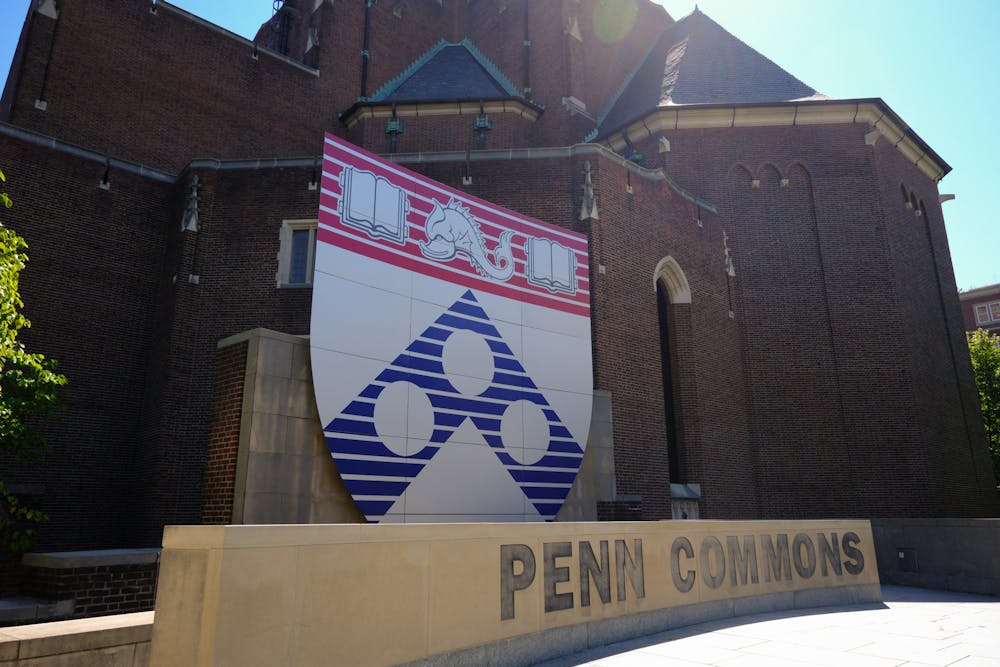
Penn's South Asian Society's annual Cultural Show featured eight student performing arts groups in Irvine Auditorium on Oct. 12.
Credit: Abhiram JuvvadiPenn’s Department of History hosted a post-election panel titled “The Past and Possible Futures of American Politics” on Nov. 8 in Irvine Auditorium’s Amado Recital Hall.
Moderated by history professor Brent Cebul, the panel featured George Washington University professor Timothy Shenk, American University scholar-in-residence Laura Field, Pennsylvania state senator Nikil Saval (D-Philadelphia), and Penn Carey Law Seaman Family University Professor Karen Tani. Around 100 students, faculty, and Philadelphia residents attended the 90-minute event.
Each panelist delivered opening remarks related to their areas of specialty, reflecting on the historical dynamics that shaped the 2024 election outcome.
Shenk, who has written on changes in the Democratic voting coalition, argued that the party's 2024 defeat was a broad rejection of the administration of President Joe Biden, rather than a political realignment toward 1968 Wharton graduate, former President, and President-elect Donald Trump.
Field discussed the rise of “New Right” intellectuals from organizations such as the Heritage Foundation, which she said have taken a more “radical turn” in recent years. For example, she pointed to a moment at the National Conservatism Conference in 2022 when Heritage Foundation President Kevin Roberts vowed to “rescue America from the barbarians inside the gates of our very own institutions.”
Tani's primary focus was the impact of Republican policies on the administrative state, and how conservative legal movements have pushed for a stronger executive and less discretion from bureaucratic organizations.
“All lawmaking actually depends on the implementation stage, so conservatives sometimes criticize it and try to shrink it often, because they don’t like how liberal administrations have used it in the past,” Tani said.
Saval elaborated on his role in Sen. Bernie Sanders’ (I-Vt.) 2016 and 2020 presidential campaigns, which energized the Democratic base with a populist economic message. He said that the Biden administration failed to deliver an economically progressive agenda by not passing the Build Back Better framework or the Protecting the Right to Organize Act.
After the opening statements, audience members asked questions related to the role of masculinity and gender politics in the Trump campaign, the need for comprehensive higher education policy, and the future of reproductive healthcare, among other topics.
Attendees included students in a recitation with professor Marcy Norton and PhD student Zoe Fallon's “Colonial Latin America” class in the Department of History. College junior Daniella Oyenuga, a student in the course, said that her teaching assistant hoped to instill in students the importance of this election and “how the history that we’re learning connects to right now.”
Oyenuga, who said that she initially doubted that a Trump victory was even possible, felt that the event clarified topics that she has mainly encountered through social media, especially as a Canadian.
“A lot of the time, we got a lot of our information on TikTok. We don’t know what’s actually, like, right. So I feel like this event gave more context to things,” Oyenuga said.
Cebul told The Daily Pennsylvanian that the event was not initially organized by Penn’s Department of History, but by him and Shenk to discuss topics covered in Shenk’s new book, “Left Adrift: What Happened to Liberal Politics.”
According to Cebul, the two of them did not imagine that the stakes of this year’s election would be “as dramatic as they turned out to be.”
Field told the DP that she hopes students gained insight into the “radical nature” of some plans for the Trump administration, but also to consider the dynamics of voter preference that will shape eventual policy.
“I also hope that [event attendees] think about how Trump might not go along with all of that, and to think a little bit more about demographics, if the voters themselves are not necessarily aligned … to think carefully about that and just look at how it unfolds,” Field said.
Cebul said he further hopes that students gained context on “the institutional and political dynamics shaping this moment,” which could shape “organizing left, right, and center” going forward.
The Daily Pennsylvanian is an independent, student-run newspaper. Please consider making a donation to support the coverage that shapes the University. Your generosity ensures a future of strong journalism at Penn.
Donate







